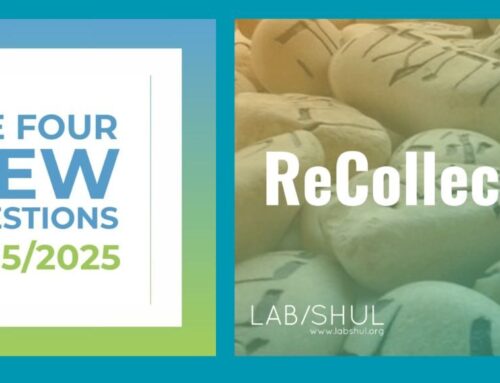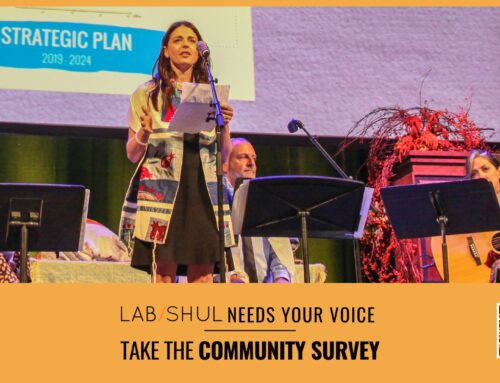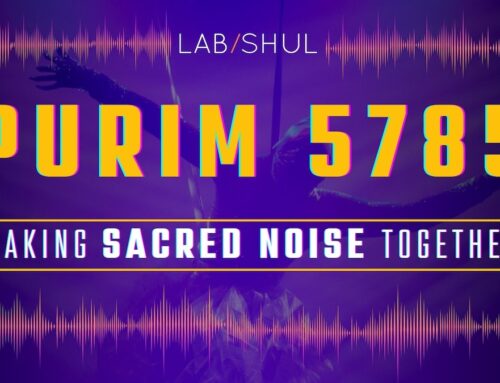In honor of Earth Day, Lab/Shul’s Director of Community Organizing & Engagement, Sam Hipschman, sat down with Lab/Shul Partner Zoë Greenberg who restores oyster reefs.
What neighborhood do you live in?
Boerum Hill, Brooklyn
What do you love most about your neighborhood?
The proximity to so many different neighborhoods – if I walk five minutes this way I’m in downtown Brooklyn, Prospect Heights, Gowanus. I love the proximity.
How did you find Lab/Shul?
It was during this pandemic. I was searching for some sort of Jewish community that I could participate in online. I’ve been searching my whole life, but it felt more immediate when I was alone in my apartment. It was right before the High Holy Days and I went to services for Rosh Hashanah and Yom Kippur. I was so moved and totally sold on the community.
What do you do for work?
I organize diving operations for an oyster restoration initiative. The team of divers that does that survey work with me is a group of students from a NYC public high school that I trained to become working divers. They’re training to become divers in their future careers.
What’s important about oyster restoration?
The history of New York and oysters is completely linked. Over the years, through fishing and loss of habitat as our shorelines expanded, the reefs have been decimated. With the decline of oyster reefs comes the decline of lots of biodiversity.
Oysters are a keystone species, they build reefs and create habitats for countless marine life. I love when I’m diving around the oyster reefs, you can see the incredible marine life.
Oysters do two other important things for marine life. One thing is they filter water– the theory is that one oyster can filter up to fifty gallons of water a day. If there were a billion oysters in the harbor, the adult oysters would filter the water in the harbor every three days. The other thing is they help to stabilize our shoreline. When we have big storms like superstorm Sandy, oyster reefs would have mitigated that surge and helped to break up the energy, so the flooding would have been a lot less severe.
In one sentence – what do you love most about your work?
What I love the most about my work is definitely the reactions of the students. The students give me hope that their passion, their excitement, watching their eyes get super big under water when they see a blue crab nipping at them– that spark in their eyes. There’s this idea that restoration without education is temporary, and I see that in our students all the time.
Anything else you want to add?
I am really happy to have discovered Lab/Shul! Judaism has been an important part of my life since I was a little kid, but as an adult I’ve moved around a lot and have been through a lot of Jewish communities. I hope that Lab/Shul is a place where my future child can learn and connect with the kind of Judaism and community Lab/Shul offers.











